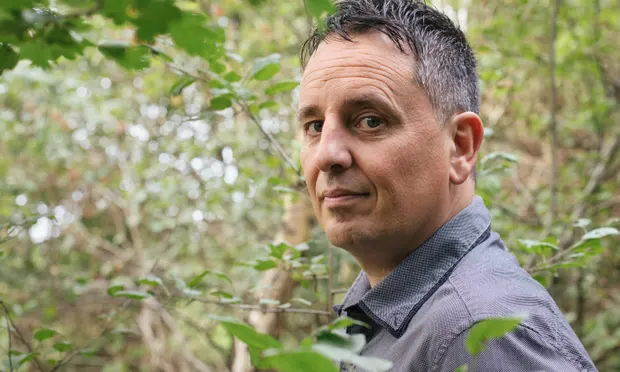Mark Williams is an unlikely mental health advocate. He grew up in a working-class community in Wales where his father and grandfather were both miners. “The attitude was very much – man up and let’s get on with it,” he says. “If we had a problem we’d go down the pub. We never talked about mental health.”
Today, Mark is the founder of International Father’s Mental Health Day, an annual event on June 22 that aims to raise awareness for the mental health needs of dads. He started the initiative due to his own battle with post-natal depression – a condition he was previously unaware could even affect men.
The trouble began during the hellish birth of Mark’s son in 2004. It was a brutal labour that led to an emergency C-section. “I felt helpless,” the 46-year-old recalls. “I thought my wife and baby was going to die.”
Mark’s wife ended up having severe post-natal depression brought on from the birth trauma. Consumed with worry both about the welfare of his wife and his ability to support his young family, Mark was also haunted by memories of the labour that he now suspects triggered PTSD. Yet reluctant to saddle his wife with further stress, he kept his anxieties to himself. Instead Mark began self-medicating with booze.
The common image of post-natal depression is lethargy and withdrawal. But Mark suggests it can often look very different in men where the black dog can manifest itself in anger, overwork, heavy drinking or substance abuse.
“I had a complete personality change,” Mark says. “I was drinking more, starting fights with bouncers – it was like I was self harming by wanting someone to hit me, so I could take that pain. And I’d never, ever been like that before.”

Despite being rocked by suicidal thoughts and panic attacks, Mark managed to struggle along until, after five years, he ended up having a full breakdown. This time he got help the help he needed in the form of mental health treatment, medication and alcohol counselling.
He founded Fathers Reaching Out after a random conversation to a stranger in the gym made him aware of just how prevalent mental health issues among fathers really are. One in 10 new dads will experience postnatal depression and 57% of first-time fathers admit to significantly increased stress levels.
Despite the widespread nature of this issue, the stigma about experiencing difficulties in early parenthood is even higher for men than for women, says Mark. Disturbingly, 43% of first-time dads believe postnatal depression and anxiety is a sign of weakness. As a result, men often don’t want to admit it or seek help.
That’s why, even if you’re not struggling yourself, you need to look out for your mates, particularly those who are grappling with the blur of early fatherhood. “Dads need peer support groups,” Mark says. “They need to be connected with other dads going through the transition of fatherhood at the same time.”
Bear in mind, too, that the peak time for post-natal depression in men is between three to six months after the birth. “That’s when I was at my worst,” Mark admits. “During that time, I was having suicidal thoughts. One time I punched the sofa so hard I broke my hand.”
To monitor your mental health or get a better idea of the warning signs of postnatal depression in others check the PANDA guidelines here. But when it comes to your mates who are new dads or have a baby on the way, the most important thing is simply to stay in touch.
Ask them “How are you going?”. Then after they’ve fobbed you off with the inevitable “fine”, follow up with “How are you really going?”
Do you feel like you’re struggling? You’re not alone. Click here to take the PANDA checklist to help you clarify what you’re experiencing and assist you to get help if necessary. Alternatively check out the Gidget Foundation’s support services for dads: here
